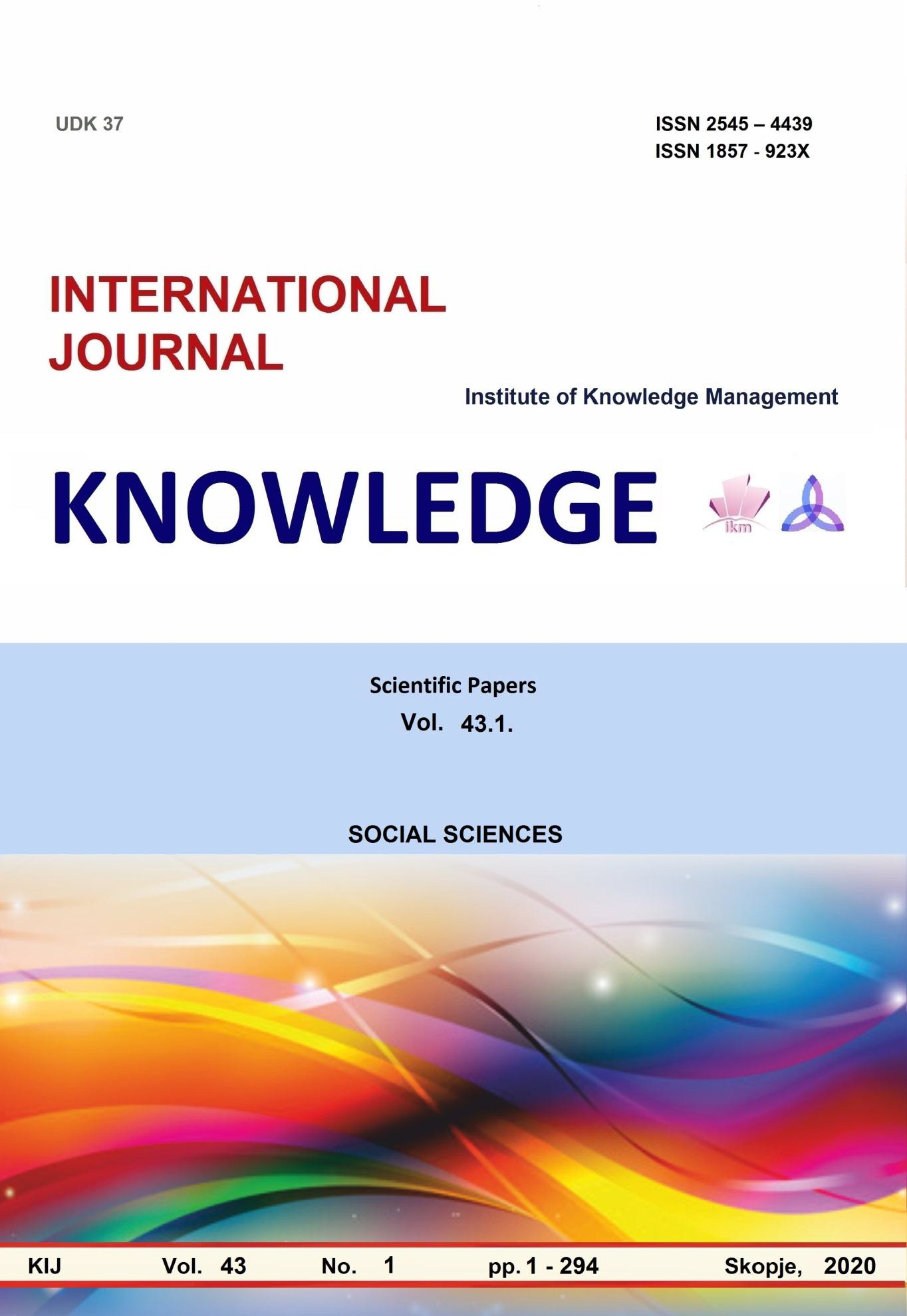THE POTENTIAL OF BULGARIA AND THE WESTERN BALKANS TO SERVE AS A GLOBAL CENTER FOR INNOVATIONS AND INTERNATIONAL TECHNOLOGY TRANSFER
THE POTENTIAL OF BULGARIA AND THE WESTERN BALKANS TO SERVE AS A GLOBAL CENTER FOR INNOVATIONS AND INTERNATIONAL TECHNOLOGY TRANSFER
Author(s): Simeon StoilovSubject(s): Social Sciences
Published by: Scientific Institute of Management and Knowledge
Keywords: Innovation; International Transfer of Technology; Sustainable Growth; Economic Development; Globalization; Global Value Chains;New Economy
Summary/Abstract: This study aims to provide evidence for the good timing to forming a unity between Bulgaria and the countries of the Western Balkans in a coordinated effort for building strategic profile and capacity in the commercialization, brokerage and servicing of international innovation and technology transfer (IITT). The timing is right, especially in a post pandemic economic recovery of the world and the course of accession of the Western Balkans to the EU. The study justifies the need of a unified strategic framework, to avoid political and partisan momentary discourse, which might negatively affect the whole region politically, socially, and economically. All the arguments and reasoning in the study assume that the economic crisis of the COVID-19 pandemic is the crisis of the broken supply chains (GSC). Lives are lost, jobs are lost, and global governments are facing a thread that leaves the citizens of their respective countries with neither medical, not economic safety. It is a priority are to secure sustainability and resilience for each country and region. Countries do consider recovery through reposition on the new global value chains (GVC) structure. Globalization is inevitable and irreversible but at the same time proximity and regional sustainability are a critical factor in international trade and will continue to be on focus. The competitive advantages and even economies of scale in production are not sufficient for the contemporary global economy and international trade. Technologies are and will be more often the objects of international commercial transactions. Thus, more economies are and will continue trying to build economic capacity by implementation of innovations and new technologies. Timing is critical and internal national research and development (R&D) is often not adequate to the urgency of economic needs. Thus, national and corporate economic subjects are more likely to acquire technology capacity to satisfy their needs, rather than trading the demanded goods or services. In such cases, the IITT is the most efficient and justified approach, though it requires capacity to evaluate, adapt, integrate, monitor, and navigate through a solid scientific background. IITT management set of skills is unique and requires multidisciplinary protocols and scientific expertise. The paper is reasoning that the development of such specialization on the Balkans is well justified by the similarities in the economic background of countries in the region and the open cohesion and convergence programs. In addition to those, the accession process to the EU for the Western Balkans and the EU membership of Bulgaria are tools and access to additional funding sources and IP protection. The EU framework and the union infrastructure are also an engine to reposition Bulgaria and the Western Balkans on the EU markets with products of higher level of technology input and showcase the added value of a specialization of the region in knowledge transfer and application. The paper is advocating the conclusion that economic growth and sustainable development of Bulgaria and the Western Balkans is not possible through a simplified cohesion and convergence process only but through advanced specialization in IITT. The current study concludes, that by a targeted regional policy for industrial specialization in IITT, Bulgaria and the Western Balkans will have a chance to take a leading role in the European economy and in the GVC of the near future. Structuring of the economic profile with substantial dominance of IITT is an opportunity to achieve high level of sustainability, upgrading the social and demographic environment of all individual countries. The Research and Development of new technology as an immense consequence of the IITT specialization of the region is the second stage perspective, which all together with the new technology solutions implication in the region will build and advance proprietary capacity of each individual country and the region for the next decades.
Journal: Knowledge - International Journal
- Issue Year: 43/2020
- Issue No: 1
- Page Range: 81 - 87
- Page Count: 7
- Language: English

